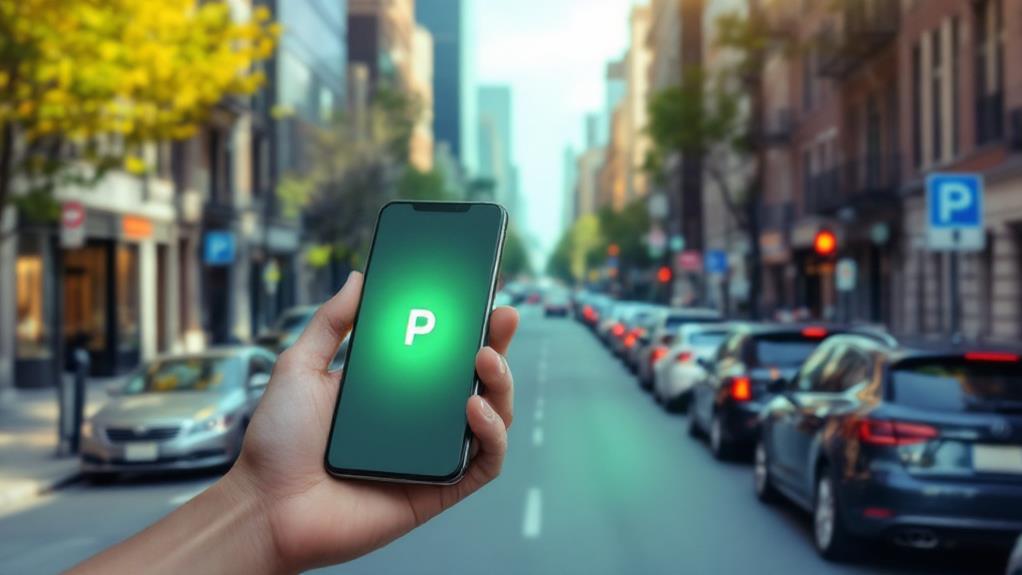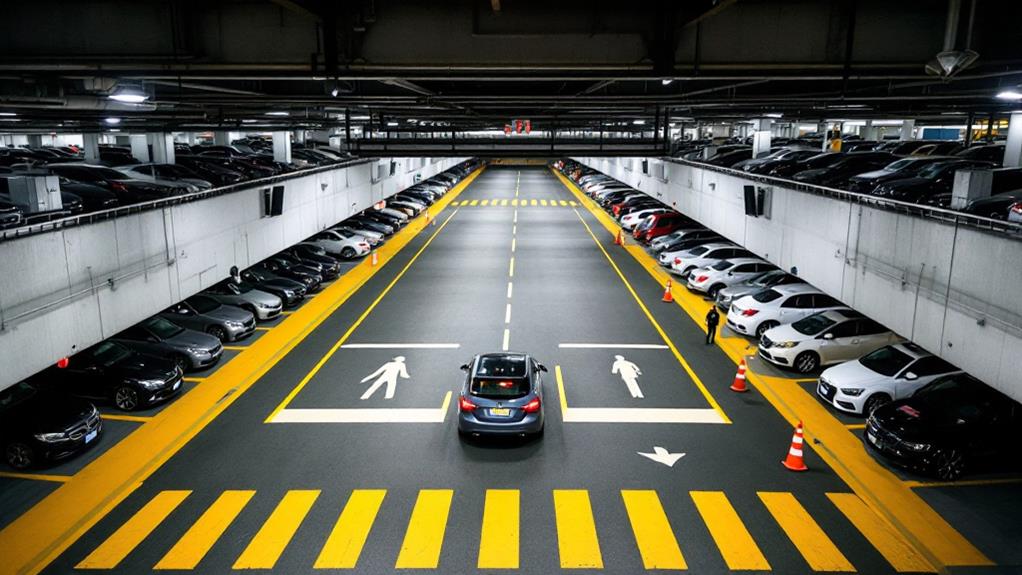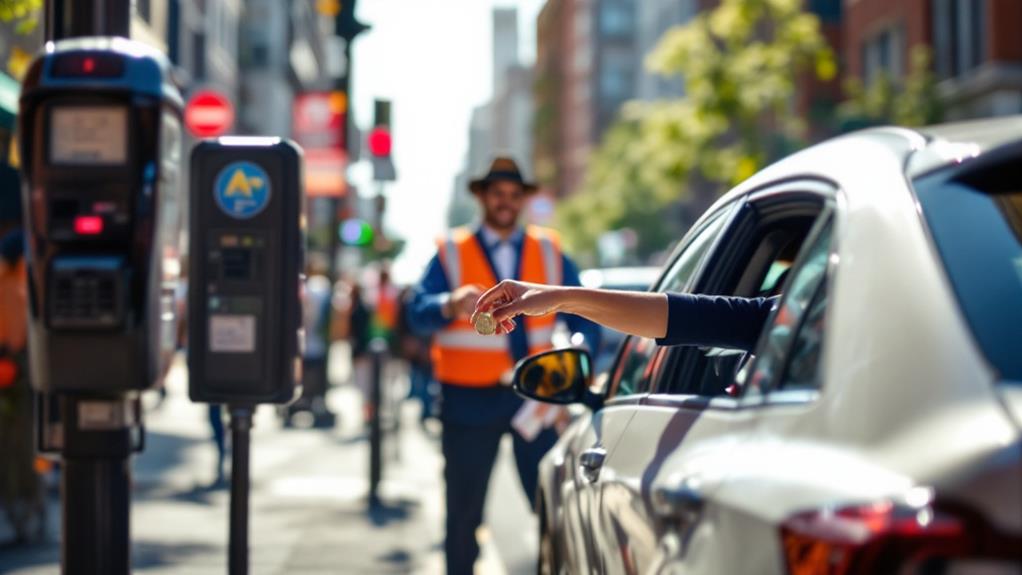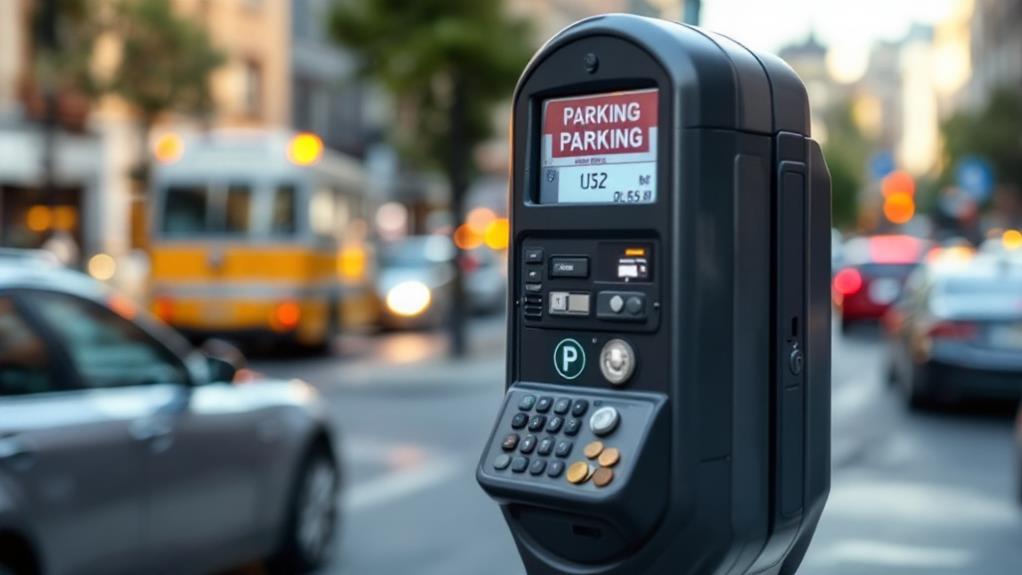Everything You Need to Know About Valet Parking in Urban Areas

Valet parking in urban areas offers you convenience and luxury, saving time and reducing stress in congested environments. You'll hand your car to a professional valet, receive a claim ticket, and have your vehicle returned when needed. While it comes at an additional cost, the benefits often outweigh the expense. To use valet services, you'll encounter trained staff, specific etiquette, and tipping expectations. Safety measures and insurance coverage protect your vehicle, while innovative technologies enhance the experience. Urban valet services optimize parking spaces, reduce traffic, and contribute to increased customer satisfaction. There's much more to uncover about this revolutionary urban parking solution.
What Is Valet Parking?
Valet parking is a service that offers convenience and luxury to drivers in busy urban areas. When you use valet parking, you hand over your car keys to a professional attendant who parks your vehicle for you. This service is commonly found at high-end restaurants, hotels, and entertainment venues where parking spaces are limited or difficult to access.
The valet parking process typically begins when you drive up to a designated drop-off area. An attendant greets you, provides a claim ticket, and takes your car to a secure parking location. When you're ready to leave, you present your ticket, and the valet retrieves your vehicle.
This service is particularly beneficial in congested urban areas where finding parking can be time-consuming and stressful. Valet parking enhances the customer experience by eliminating the need to search for a spot or walk long distances from remote parking lots. It also provides an added layer of security, as your car is handled by trained professionals and often parked in monitored areas. While valet parking usually comes with an additional cost, many find the convenience and time savings well worth the expense.
Benefits of Urban Valet Services
The benefits of urban valet services extend far beyond simple convenience. When you're navigating busy city streets, offering valet parking can significantly improve your experience and streamline the process of finding a spot. Valet services optimize the use of available parking spaces, allowing more vehicles to be accommodated in the same area. This efficient use of space helps reduce traffic congestion and prevents bottlenecks in high-traffic urban zones.
By choosing valet parking, you're not only saving time but also enhancing your overall customer experience. Professional valets with excellent customer service skills guarantee a seamless experience from the moment you arrive until you retrieve your vehicle. They prioritize your safety and that of your car, implementing proper handling and security measures to minimize the risk of accidents or incidents.
Moreover, urban valet services are embracing innovative technologies to further improve their operations. Mobile apps and vehicle tracking systems offer you real-time updates and peace of mind. These advancements, combined with the proficiency of valet staff, contribute to increased customer satisfaction and a stress-free parking solution in bustling urban environments.
Valet Parking Permit Requirements

In accordance with city regulations, businesses offering valet parking services must traverse a series of permit requirements. If you're planning to operate a valet service in Houston, you'll need to obtain a Valet Parking Service Permit from the city. This application process requires you to provide detailed information about your business, the proposed valet zone, and proof of insurance coverage.
Additionally, you'll need to apply for a Valet Zone Permit to designate a specific curbside area for your valet operations. This guarantees that your service has a dedicated space to operate efficiently and safely. If you're planning to offer valet parking for temporary or one-time events, you'll need to secure a Special Event Valet Parking Permit.
It's indispensable to familiarize yourself with the City of Houston's Valet Parking Ordinance, which outlines all the necessary fees and requirements for obtaining these permits. By understanding and complying with these regulations, you'll be able to operate your valet parking service legally and professionally. Remember that these requirements are in place to maintain order and safety in urban areas where parking can be challenging.
Choosing a Reputable Valet Company
Selecting a reputable valet company is vital for guaranteeing the safety of your customers' vehicles and upholding a positive image for your business. When choosing a valet service provider, look for companies with extensive experience and a proven track record of reliable, professional services. You'll want to verify that every aspect of their operation meets high standards.
Verify that the valet company carries adequate liability insurance to protect customers' vehicles. This step is imperative in safeguarding your business against potential claims. Additionally, check that the valet staff have clean driving records, appropriate licenses, and receive extensive training in customer service and vehicle handling.
Consider the valet company's ability to efficiently manage parking volume at your location. Their response time and organization are key factors in providing smooth valet services. Don't hesitate to request references from other businesses they've served to assess their overall performance and quality of service.
Valet Parking Etiquette for Customers

Following proper valet parking etiquette guarantees a smooth experience for both customers and valet staff. When using valet parking services, remember to treat the attendants with respect and courtesy. Arrive at the valet stand prepared with your car keys ready, and inform the staff of any special instructions or concerns about your vehicle.
To certify a positive experience for everyone involved, follow these etiquette guidelines:
- Tip appropriately: 15-20% of the valet fee is standard
- Remove precious items from your car before handing it over
- Don't argue about parking fees or policies with valet staff
- Be patient during busy times or when retrieving your vehicle
- Have your claim ticket ready when picking up your car
When you return to collect your vehicle, approach the valet stand calmly and present your claim ticket. If there's a wait, remain patient and understanding. Remember that valet staff are working hard to provide a hassle-free experience for all customers. By following these guidelines and treating valet attendants with respect, you'll contribute to a smoother, more efficient valet parking process for everyone involved.
Costs and Tipping Expectations
Understanding the costs and tipping expectations associated with valet parking can help you budget appropriately and show appreciation for the service. Valet parking companies typically pay their employees an hourly rate between $9 and $15, with the national average hovering around $12 per hour. However, valet parkers rely heavily on tips to supplement their income.
When using valet services, you'll generally find tip amounts ranging from $2 to $5 per service. These tips, combined with hourly wages, contribute to annual earnings of $20,000 to $40,000 for valet parkers. As a customer, you're not obligated to tip when dropping off your vehicle, but it's customary to tip when retrieving it. This practice allows you to assess the quality of service provided.
If you receive exceptional service, consider tipping above the standard range to acknowledge the valet's professionalism and efficiency. Remember that tip expectations can vary based on location and local customs. By understanding these costs and tipping norms, you'll be better prepared to use valet services in urban areas and contribute to the fair compensation of valet staff.
Safety Concerns and Insurance

Safety is paramount when entrusting your vehicle to valet services. When using valet parking in urban areas, you should be aware of the safety measures and insurance coverage in place to protect your vehicle. Reputable valet companies take several precautions to minimize the risk of accidents and guarantee your car's safety.
Valet services must carry adequate insurance coverage, including general liability and garage keepers liability. Companies should hire valet attendants with clean driving records and provide thorough training.
A designated area for valet-only parking helps create a secure environment in the parking lot. Well-established procedures for tracking and securing vehicle keys prevent unauthorized use. Regular safety audits help identify and address potential hazards.
Before handing over your keys, ask about the valet service's insurance coverage and safety protocols. Ensure they have a designated area for valet parking and proper signage to reduce the risk of accidents. Remember, a professional valet attendant should be trained in safety procedures and handle your vehicle with care. By choosing a reputable valet service, you can enjoy the convenience of valet parking while minimizing safety concerns.
Technology in Valet Operations
The digital revolution has altered valet parking operations in urban areas. You'll find that technology has taken valet services to the next level, offering convenience in cities where limited parking is a constant challenge. Implementing valet systems now involves mobile apps for contactless service, vehicle tracking, and automated payments, streamlining your experience from drop-off to pick-up.
These tech-driven solutions considerably enhance efficiency and reliability. You'll encounter innovative features like automated license plate recognition and digital key handoffs, reducing your wait times and boosting overall satisfaction. The adoption of cloud-based platforms allows valet operators to manage multiple locations remotely, adjust pricing dynamically, and monitor operations in real-time.
Data-driven valet parking systems provide perceptive insights into vehicle locations, dwell times, and other key metrics. This information helps operators continuously improve their services, ensuring you receive first-rate parking assistance. As urban areas continue to grapple with parking shortages, these technological advancements in valet operations offer a smart solution, maximizing space utilization while providing you with a seamless, efficient parking experience.
Environmental Impact of Valet Parking
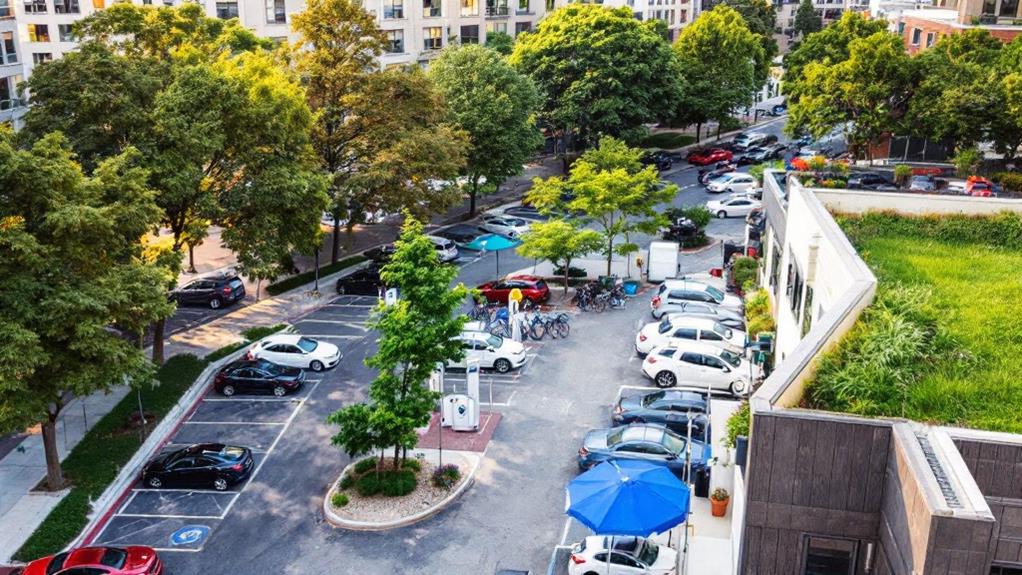
While technology enhances valet operations, it's equally important to ponder the environmental implications of these services in urban areas. Valet parking can actually reduce overall vehicle miles traveled and emissions compared to self-parking. By understanding your customers' needs and preferences, a good valet service can optimize parking space utilization and vehicle placement, leading to several environmental benefits:
- Decreased parking lot congestion
- Reduced idle time
- Lower fuel consumption
- Fewer greenhouse gas emissions
- Improved urban air quality
These advantages stem from valets' ability to efficiently manage parking spaces, resulting in less circling and searching for spots. Additionally, valet services can facilitate closer integration with public transit, encouraging multi-modal excursions and reducing reliance on personal vehicles.
To maximize these environmental benefits, it's essential for valet operations to prioritize proper staff training and implement best practices in vehicle handling. By doing so, they can further enhance their positive impact on urban environments. As an overall customer benefit, choosing valet parking in dense city areas not only offers convenience but also contributes to a greener, more sustainable urban setting.
Future Trends in Urban Parking
As we look to the future of urban parking, several innovative trends are reshaping the setting. You'll soon experience a world where your car is parked and retrieved by automated systems, making traditional valet services seem outdated. These robotic valets will not only enhance efficiency but also provide a seamless first impression for visitors to urban areas.
Smartphone-enabled valet services are gaining traction, allowing you to summon your vehicle remotely. This convenience comes with Pros and Cons: while it reduces wait times, it may lead to increased reliance on technology. It is crucial to emphasize that flexible pricing models are becoming more prevalent, adjusting rates based on demand. This means you might save money by parking during off-peak hours.
The rise of shared mobility solutions is decreasing overall parking demand, potentially altering urban landscapes. Data-driven parking management systems are optimizing parking supply, making it easier for you to find spots. As these trends converge, you'll witness a shift towards more responsive and efficient urban parking infrastructure, fundamentally changing how you interact with city spaces.
